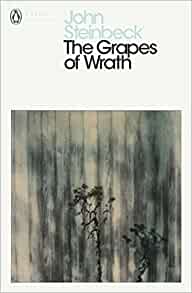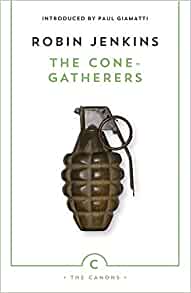Decades: Compiling the Ultimate Library with Paul Cuddihy
In January I began a quest to determine which books would be represented in the Ulitmate Library. Imagine, if you will, a vast room lined with dozens of empty bookshelves all crying out to be filled with the best books available. Alternatively, you are handed a brand new digital reader and asked to fill it with nothing but the best titles you can think of. Where would you start? How do you choose?
I confess I had no idea where to begin and I knew if I tried then it would only result in a selection of crime thrillers, all the Terry Pratchett books and a fan-boy collection of Doctor Who novels. Hardly the best representation of centuries of writing.
Rather than tackle this challenge alone I decided to invite book lovers to join me in my quest. Each guest curator is asked to nominate any five books which should be included in my Ultimate Library. However, they are only permitted to select one book per decade and they must choose from any five consecutive decades.
That’s it. Two Rules. Five Books, Five Consecutive Decades.
While you contemplate your personal selections I will hand over to today’s guest: Paul Cuddihy.
You know the format by now…I ask Paul to introduce himself and then I pass him the Decades baton as he nominates his five books.
DECADES
I’m Paul Cuddihy, and I’m a journalist, writer and podcaster. I run a books podcast – Read All About It – where people talk about their favourite and not so favourite books. Each guest chooses a book from these five categories:
 Favourite book from childhood.
Favourite book from childhood.
Favourite book from teenage/formative years.
A book you’d recommend to anyone
A book you couldn’t be paid to read again
The last book you read/are currently reading.
The podcast has been running since January 2020, and it has been an absolute blast – what could be better than sitting talking books with people? You can find the podcast on iTunes, Spotify, Amazon Music and most other places where you get your podcasts.
I also self-published a non-fiction book called Read All About It back in 2015, which charted my year of trying to read more books and fall in love with literature again.
I have had three novels published – a historical trilogy set between Scotland, Ireland and the United States in the late 19th and early 20th century.
I also published a book of short stories inspired by Duran Duran – every story is a song title from the band. I am, I confess, a big Duranie! (And, no, that’s not Cockney rhyming slang!) I am also in the process of launching a new podcast with a friend called the Duran Duran Albums Podcast, with each episode looking at one of the band’s 14 studio albums. I am convinced the world is waiting for such a podcast!
And I have also written around 10 books on Celtic Football Club through my work as a multi-media journalist with the club.
As any good writer will admit, I am currently working on a novel, but I can’t tell you what it’s about! I don’t want to jinx it.
You can find me on:
Twitter: @paulthehunted or @readallabout20 Email: author@paulcuddihy.com
Website: www.paulcuddihy.com
In choosing these books, my starting point was including The Cone-gatherers, which was published in the 1950s, and then I just had to work out which direction to go after that – I decided to go backwards and forward!
This is a great idea – anything to get you thinking, writing or talking about books is – and I’m delighted to be taking part in it
1920s
All Quiet on the Western Front: Erich Maria Remarque (1929)
This is a novel of the First World War but told from the perspective of a German soldier. Remarque was a veteran of the conflict, and All Quiet on the Western Front tells the reality of the terrible conflict, which was in sharp contrast to the patriotic appeals which led his main character, Paul Baumer, to enlist in the Kaiser’s army. The fact that the book was banned and burned by the Nazis only adds to its reputation. The novel strips away the mythical glamour and heroism of war, and instead gives an honest portrayal of the mundanity of live in the trenches, which is accompanied by its horrors, and how the soldiers subsequently find civilian life difficult to adjust to, given their wartime experiences.
1930s
The Grapes of Wrath: John Steinbeck (1939)
 I think this was the first novel which made me cry as an adult. The ending of this novel is breathtaking, and comes at the end of the arduous journey you’ve been on with the characters as they travel from the 1930s Oklahoma dustbowl to the apparent promised land of California. I have read this book three times already, and I’m sure I’ll read it at least three more times in the years ahead – and I say that as someone who does not re-read many books. This is a stunning novel, following the Joad family on their journey across America. The writing is perfect – the description of the food being cooked and eaten on the way is such that there are times when I’m sure I can smell the aromas, or taste the food. Certainly, my mouth waters on occasion. A couple of years ago, my wife and I drove the Pacific Highway on America’s west coast, from San Francisco to Los Angeles, and one of my highlights was visiting the National Steinbeck Centre in Salinas. Of course, I purchased a copy of The Grapes of Wrath there!
I think this was the first novel which made me cry as an adult. The ending of this novel is breathtaking, and comes at the end of the arduous journey you’ve been on with the characters as they travel from the 1930s Oklahoma dustbowl to the apparent promised land of California. I have read this book three times already, and I’m sure I’ll read it at least three more times in the years ahead – and I say that as someone who does not re-read many books. This is a stunning novel, following the Joad family on their journey across America. The writing is perfect – the description of the food being cooked and eaten on the way is such that there are times when I’m sure I can smell the aromas, or taste the food. Certainly, my mouth waters on occasion. A couple of years ago, my wife and I drove the Pacific Highway on America’s west coast, from San Francisco to Los Angeles, and one of my highlights was visiting the National Steinbeck Centre in Salinas. Of course, I purchased a copy of The Grapes of Wrath there!
1940s
Hiroshima: John Hersey (1946)
This is a stunning piece of reportage, and I can’t think of anything that better explains the horrors of weapons of mass destruction. It was originally published in the New Yorker magazine in August 1946, with the whole magazine given over to Hersey’s story. Hersey was one of the first Western journalists to visit Hiroshima after the devastation of the Japanese city by an American atomic bomb on August 6, 1945. He tells the story of what happened that day and afterwards through the stories of six survivors, and I can only imagine it profoundly affects every reader. What makes the book so successful, I think, is that Hersey tells this story which has a global impact though the personal. That makes what happens – which is almost beyond comprehension – all the more shocking because the reader invests their emotions in the stories of these six people.
1950s
The Cone-gatherers: Robin Jenkins (1955)
 This is the book I recommend to everyone, and I subsequently judge them, depending on their reaction to it! It’s long been a bugbear of mine that when I was growing up, we were taught very little Scottish literature at school – I was at high school between 1978 and ’83 – and so I was in the twenties before I read The Cone-gatherers. It was love at first read, and Robin Jenkins remains my favourite Scottish author. The novel is set on a country estate during the Second World War, where conscientious objectors are set to work gathering cones to be replanted to replenish forestry stock. The two main characters are Neil and his brother, Callum, and there’s a nod to Of Mice and Men in the characters of the two brothers, with Neil almost a carer for Callum. The clash between good and evil in this garden of Eden is built with increasing tension by Jenkins, as the brothers’ relationship with the estate’s gamekeeper, Duror, slowly deteriorates, and the ending is incredibly dramatic. The Cone-gatherers is a masterpiece.
This is the book I recommend to everyone, and I subsequently judge them, depending on their reaction to it! It’s long been a bugbear of mine that when I was growing up, we were taught very little Scottish literature at school – I was at high school between 1978 and ’83 – and so I was in the twenties before I read The Cone-gatherers. It was love at first read, and Robin Jenkins remains my favourite Scottish author. The novel is set on a country estate during the Second World War, where conscientious objectors are set to work gathering cones to be replanted to replenish forestry stock. The two main characters are Neil and his brother, Callum, and there’s a nod to Of Mice and Men in the characters of the two brothers, with Neil almost a carer for Callum. The clash between good and evil in this garden of Eden is built with increasing tension by Jenkins, as the brothers’ relationship with the estate’s gamekeeper, Duror, slowly deteriorates, and the ending is incredibly dramatic. The Cone-gatherers is a masterpiece.
1960s
Catch 22: Joseph Heller (1961)
 Peter McGhee was my English teacher when I was studying Higher English at Turnbull High School in Bishopbriggs between 1982-83. If I met him now, I would buy him a pint and thank him for giving us Catch 22 to read that year. What he actually did was give the boys Catch 22, while the girls had to study DH Lawrence’s Sons and Lovers. I’m not sure if the girls in the class were as grateful for the book choice, but all of us loved Catch 22. It’s funny, irreverent, with some topics and language that
Peter McGhee was my English teacher when I was studying Higher English at Turnbull High School in Bishopbriggs between 1982-83. If I met him now, I would buy him a pint and thank him for giving us Catch 22 to read that year. What he actually did was give the boys Catch 22, while the girls had to study DH Lawrence’s Sons and Lovers. I’m not sure if the girls in the class were as grateful for the book choice, but all of us loved Catch 22. It’s funny, irreverent, with some topics and language that
we weren’t used to reading about in a Catholic high school, and that made it all the more appealing. I remember being in other classes where, if the teacher was off, we were told to take out a book and read it for the hour. Normally, that would be a signal for anarchy in the classroom, but we would take our copies of Catch 22 out, becoming instantly engrossed and laughing out loud at various parts of the book. There is a poignancy to the novel, of course, and a serious message about the futility and madness of war, but it’s also a very funny book. Thanks, Mr McGhee, I still owe you a pint!
A brilliant mix of books I instantly recognised with a couple which were new to me. I really enjoy when I learn of new books I should be seeking out. My thanks to Paul for putting himself through the wringer to narrow down his choices to this final five.
You can find Paul’s Amazon page and pick up any of his books here: https://www.amazon.co.uk/Paul-Cuddihy/e/B003E3LJIW?ref=sr_ntt_srch_lnk_1&qid=1617564066&sr=8-1
If you are keen to see the choices already submitted to the Library by my previous guests, you can visit the Ulitmate Libary here: https://grabthisbook.net/?p=5113

